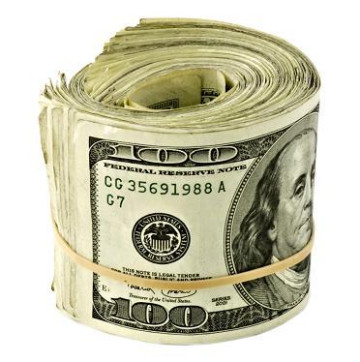Can Online Gambling Save RI?
Saturday, December 31, 2011
With $350 million in annual gambling revenue potentially at risk as Massachusetts moves forward with plans to build three resort-style casinos and a slot parlor, Rhode Island will look into internet gambling as a way to generate extra cash, the state’s Lottery Director Gerald Aubin said this week.
The issue was raised after the Department of Justice (the DOJ) ruled that online gambling does not violate existing federal law, opening the door for cash-strapped states to expand gambling revenues through internet lotteries and potentially, online poker.
The decision came after New York and Illinois sought a legal opinion over whether each state could begin selling lottery tickets online. Because it would not involve sports betting, the DOJ said the states’ proposals would not violate the Federal Wire Act.
GET THE LATEST BREAKING NEWS HERE -- SIGN UP FOR GOLOCAL FREE DAILY EBLASTIt Makes Sense
With the state always looking for ways to generate extra revenue, it wouldn’t be a surprise to see Rhode Island attempt to follow New York and Illinois’ lead in the coming year. Governor Lincoln Chafee has expressed concern about increased gaming competition in New England and has suggested the state must find a way to protect its third-largest source of revenue.
Patti Doyle, a spokeswoman for Lincoln-based Twin River said she is not surprised the state may consider online gambling.
“With more and more people conducting online transactions it certainly makes sense for the state to explore how it can meet the needs of those wishing to engage in gaming online,” Doyle said.
Biggest Policy Failure
But critics say the DOJ’s ruling will do far more harm than good for states, arguing that it will be far easier for addicts and young people to gamble if they can do it online. And while the DOJ’s ruling was meant to address lotteries, it also opens the door for online poker, which made international headlines earlier this year when the two largest websites in the world (PokerStars and Full Tilt Poker) were closed to American players.
In a blog post written this week, Les Bernal, the executive director of Stop Predatory Gambling, blasted the ruling.
“It essentially allows state governments to open a lottery retailer in every home, office, dorm room and handheld phone with an internet connection, twenty-four hours a day, seven days a week,” he wrote.
Bernal continued: “It is time the DOJ and other government agencies whose purpose is to promote more fairness and equality in American society take aim at one of the country’s biggest policy failures in the last forty years- government’s predatory gambling program.”
Create a Licensing Regime
But the gambling world remains thrilled with the decision and what it could mean moving forward. John Pappas, who heads up the Poker Players Alliance, applauded the DOJ for offering a “much needed clarification of an antiquated and often confusing law.”
“For years, legal scholars and even the courts have debated whether the Wire Act applies to non-sporting activity. Today’s announcement validates the fact that Internet poker does not violate this law,” Pappas said. “The PPA commends Assistant Attorney General Seitz for recognizing this. However, this ruling makes it even more important that Congress act now to clarify federal law, and to create a licensing and regulation regime for Internet poker, coupled with clear laws and strong enforcement against other forms of gambling deemed to be illegal.”
Pappas said the hope as the Congress can address the issue before states create individual plans.
“This will provide policy makers at both the state and federal level with the legal confidence to move forward with licensing and regulation of online poker and other non-sporting activity within their respective jurisdictions,” he said. “However, it is our hope that our federal policy makers see this as an incentive to move quickly to enact federal licensing and regulation before various states produce a mix of individual state schemes that may not be the best model to serve consumers.”
States Need Money
There will likely be severe backlash from several Rhode Island groups if the state does plan to take up internet gambling in some form, but in a state that also doesn’t wish to taxes or broaden the sales tax, plenty of advocates will argue in favor of the cause.
Rick Bronson, chairman of U.S. Digital Gaming, said he constantly has states approaching him to talk about the amount of revenue internet gambling can generate.
“Once again, states will be looking for the types of revenue that online gaming can bring – immediate, significant and safely regulated,” Bronson said. “Iowa, as one example, just completed an off-session study, in which their Racing and Gaming Commission projected a multi-million dollar spike in new, incremental revenues each year from legalized online poker only. Not a week goes by when myself, or someone on our team, doesn’t get a call or email from a governor’s office or legislator across the country saying, ‘tell me again how much money we’re talking about here’ or a similar refrain.”
Bronson said his group is currently working on new projections and budgets on a state-by-state basis to address how much money online gambling can generate.
“The need has never been greater and, there isn’t another revenue source in America that can turn on the faucet safely and effectively within 60 days – only online gaming can do that,” he said.
If you valued this article, please LIKE GoLocalProv.com on Facebook by clicking HERE.



